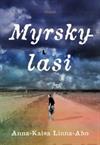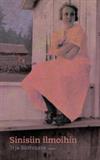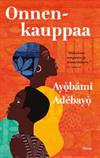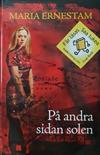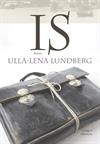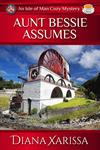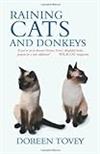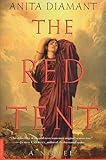
The Red Tent
Registered by synergy on 8/13/2006
1 journaler for this copy...
I found this book tossed aside at Goodwill while waiting on my husband looking around. I'd wanted to read this book, but not enough to pay full price for it. Luckily I got this $15+ for a whole $1. :)
I'd seen several mentions to this book in various places online and on booklists and had wanted to read it, but I wasn't interested enough to buy it at near full price at the bookstore. I lucked out with this copy, though, in that one day my husband was browsing for some work shorts at Goodwill and I found this book tossed aside on some shelf with a sticker price of $1. Lucky me! :)
From the back of the book:
Her name is Dinah. In the Bible, her life is only hinted at in a brief and violent detour within the more familiar chapters about her father, Jacob, and his dozen sons in the Book of Genesis.
Told in Dinah's voice, this novel reveals the traditions and turmoil of ancient womanhood - the world of the red tent. It begins with the story of her mothers - Leah, Rachel, Zilpah, and Bilhah - the four wives of Jacob. They love Dinah and give her gifts that are to sustain her through a hard-working youth, a calling to midwifery, and a new home in a foreign land. Dinah's story reaches out from a remarkable period o early history and creates an intimate, immediate connection.
Deeply affecting, The Red Tent combines rich story - telling with a valuable achievement in modern fiction: a new view of biblical women's society.
I find it interesting that there's been a surge in the number of books written like this one. While on one hand it sucks that there's very little, relatively speaking, written about women in history, that's a great thing for authors like Diamant who write fiction. It means that based on a very small framework of facts and names a whole story can be hung without knowing whether or not it was really like that or not.
The beginning of the story was boring, I'll say that right now. It's like reading through all the begats in the Bible. With all the wives and inbreeding, I was confused for a while figuring out who was who and how someone was related to someone else. It got more interesting when it was just the story of Dinah. I'd say that the best part was the name of the book. On one hand I think it's a major loss that people (not just women) don't take time like these women did every month for a week to just relax, reflect, and renew. On the other hand, I don't think I'd ever want to stay cooped up with a bunch of women for a whole week, every month! LOL
One part of the story in which Dinah's grandmother (or was it great aunt??), Rebecca, brings in Dinah and has her live with her for 3 months kind of brought back memories of Mists of Avalon. That's because the whole stay was for Rebecca to determine what kind of girl/woman Dinah was/would be. Rebecca lived like this type of high priestess with girls who serve her and had ways which are fairly pagan worshipping a goddess named "the Queen of Heaven." After some internet searching I'm finding that some historians argue that there's archaeological evidence that early Hebrews in the area of Mamre worshipped a mother goddess named Asherah. These historians argue that Sarah and her daughter-in-law Rebecca were from a matrilineal line that worshipped the sex (not mother) goddess, Inanna also known as the Queen of Heaven. But when taken to Mamre, Sarah would've picked up the worship of Asherah that local Hebrews worshipped. (Read more here.)
Anyway, in the story at the end of the end of the 3 months, Rebecca proclaims to herself or the air or who knows, "Dinah is not the heir, either. I see now that there will be none, Mamre will be forgotten. The tent will not stand after me." It was very like the end of an era, especially since after Dinah grows up, marries, and so forth, she no longer lives in tents nor observes the ceremony of the red tent. This is probably because she was the last blood daughter and because of some tragedies that happen she's separated from her family, her mothers and she goes to live in Egypt where women don't observe those traditions.
All in all, a creative read. I enjoyed it and encourages me to pick up more of these types of novels involving historical or allegedly historical female characters.







